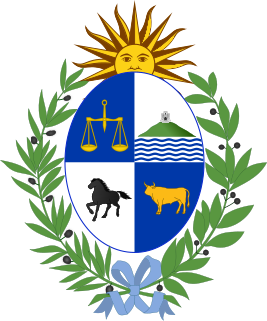 W
WA constitutional referendum was held in Uruguay on 27 November 1966 alongside general elections. Four proposals for amending the constitution were put to voters, with one option receiving 65% of the vote. As a result, the colegiado system was abolished in favour of returning to the presidential system.
 W
WThree referendums were held in Liechtenstein during 1988. The first two were held on 24 January and concerned increasing the number of members of the Landtag from 15 to 25 and a plan for company pensions. Both were approved by 51.7% of voters. The third was held on 2 October on the construction of the Gnalp-Steg tunnel and was approved by 55.1% of voters.
 W
WA constitutional referendum was held in Uruguay on 26 November 1989 alongside general elections. The proposed changes to the constitution would require state pensions to be increased at the same rate as the salary of civil servants. The proposal was approved by 81.78% of those voting and 72.51% of all registered voters.
 W
WA constitutional referendum was held in Uruguay on 28 August 1994. The proposals were rejected by 69% of voters.
 W
WA double constitutional referendum was held in Uruguay on 27 November 1994 alongside general elections. Voters were asked two questions; whether they approved of two initiatives, one on preventing cuts in pension payments, and one on the proportion of the state budget spent on education. The first question was approved, whilst the second was rejected.
 W
WA referendum on introducing a compulsory retirement savings scheme was held in New Zealand on 26 September 1997. The question put in the referendum was, "Do you support the proposed compulsory retirement savings scheme?" The proposal was rejected by 91.8% of voters, with a turnout of 80.3%.
 W
WA referendum on state pensions was held in Latvia on 13 November 1999. A bill amending the state pension law had been passed by the Saeima on 5 August. It proposed equalising the retirement age of 60 for men and 57.5 for women at 62 by 2006, as well as beginning to withhold pensions from pensioners earning more than double the state pension the following year and withholding payments to all pensioners earning an income by 2005.
 W
WA fifteen-part constitutional referendum was held in Colombia on 25 October 2003. Whilst all fifteen proposals were approved by voters, only one question had a sufficient numbers of votes to pass the 25% quorum requirement.
 W
WA referendum on amendments in the pensions law was held in Latvia on 23 August 2008. It failed due to low turnout, as 453,730 votes would have been necessary to make it valid. If it had succeeded, minimum pensions would have been tied to the government-set subsistence benefit level with a higher coefficient than earlier, in effect tripling the minimum pension from 50 lati to at least 135 lati. The referendum was strongly supported by an organisation called Society for Different Politics, which aimed to become a political party.
 W
WA referendum on a law on public sector pensions was held in Liechtenstein on 15 June 2014.
 W
WTwo referendums took place in San Marino on 25 May 2014. Voters were asked whether they approved of repealing laws on pensions reform and on medical practice, both of which were passed on 29 October 2013. Voters approved both proposals.
 W
WA non-binding referendum on reforming the pensions system was held in Sweden on 13 October 1957. Three proposals were put to voters:Employees would have the right to supplement their pension in proportion with earnings whilst working and linked to the 15 years in which they had the highest income. The value of the pension would be guaranteed by the government. Those earning income via other means, such as business owners, would have the right to sign up to voluntary supplementary pensions whose value would also be guaranteed by the government. All income earners would have the right to sign up for voluntary pension supplements, whose value would be guaranteed by the government. All income earners would have the right to sign up for voluntary pension supplements, and changes would be made to legislation to ensure their value is maintained without government involvement. The supplements would be open to collective and individual agreements.